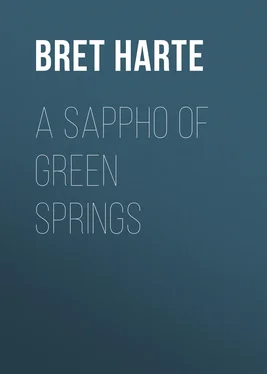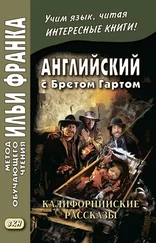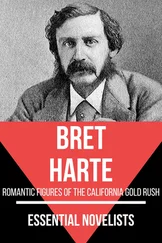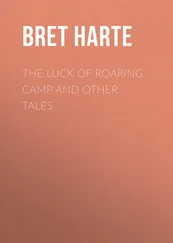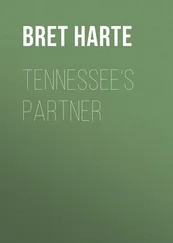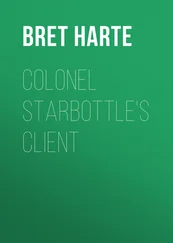Bret Harte - A Sappho of Green Springs
Здесь есть возможность читать онлайн «Bret Harte - A Sappho of Green Springs» — ознакомительный отрывок электронной книги совершенно бесплатно, а после прочтения отрывка купить полную версию. В некоторых случаях можно слушать аудио, скачать через торрент в формате fb2 и присутствует краткое содержание. Жанр: foreign_sf, literature_19, foreign_antique, foreign_prose, на английском языке. Описание произведения, (предисловие) а так же отзывы посетителей доступны на портале библиотеки ЛибКат.
- Название:A Sappho of Green Springs
- Автор:
- Жанр:
- Год:неизвестен
- ISBN:нет данных
- Рейтинг книги:4 / 5. Голосов: 1
-
Избранное:Добавить в избранное
- Отзывы:
-
Ваша оценка:
- 80
- 1
- 2
- 3
- 4
- 5
A Sappho of Green Springs: краткое содержание, описание и аннотация
Предлагаем к чтению аннотацию, описание, краткое содержание или предисловие (зависит от того, что написал сам автор книги «A Sappho of Green Springs»). Если вы не нашли необходимую информацию о книге — напишите в комментариях, мы постараемся отыскать её.
A Sappho of Green Springs — читать онлайн ознакомительный отрывок
Ниже представлен текст книги, разбитый по страницам. Система сохранения места последней прочитанной страницы, позволяет с удобством читать онлайн бесплатно книгу «A Sappho of Green Springs», без необходимости каждый раз заново искать на чём Вы остановились. Поставьте закладку, и сможете в любой момент перейти на страницу, на которой закончили чтение.
Интервал:
Закладка:
Bret Harte
A Sappho of Green Springs
A SAPPHO OF GREEN SPRINGS
CHAPTER I
“Come in,” said the editor.
The door of the editorial room of the “Excelsior Magazine” began to creak painfully under the hesitating pressure of an uncertain and unfamiliar hand. This continued until with a start of irritation the editor faced directly about, throwing his leg over the arm of his chair with a certain youthful dexterity. With one hand gripping its back, the other still grasping a proof-slip, and his pencil in his mouth, he stared at the intruder.
The stranger, despite his hesitating entrance, did not seem in the least disconcerted. He was a tall man, looking even taller by reason of the long formless overcoat he wore, known as a “duster,” and by a long straight beard that depended from his chin, which he combed with two reflective fingers as he contemplated the editor. The red dust which still lay in the creases of his garment and in the curves of his soft felt hat, and left a dusty circle like a precipitated halo around his feet, proclaimed him, if not a countryman, a recent inland importation by coach. “Busy?” he said, in a grave but pleasant voice. “I kin wait. Don’t mind ME. Go on.”
The editor indicated a chair with his disengaged hand and plunged again into his proof-slips. The stranger surveyed the scant furniture and appointments of the office with a look of grave curiosity, and then, taking a chair, fixed an earnest, penetrating gaze on the editor’s profile. The editor felt it, and, without looking up, said—
“Well, go on.”
“But you’re busy. I kin wait.”
“I shall not be less busy this morning. I can listen.”
“I want you to give me the name of a certain person who writes in your magazine.”
The editor’s eye glanced at the second right-hand drawer of his desk. It did not contain the names of his contributors, but what in the traditions of his office was accepted as an equivalent,—a revolver. He had never yet presented either to an inquirer. But he laid aside his proofs, and, with a slight darkening of his youthful, discontented face, said, “What do you want to know for?”
The question was so evidently unexpected that the stranger’s face colored slightly, and he hesitated. The editor meanwhile, without taking his eyes from the man, mentally ran over the contents of the last magazine. They had been of a singularly peaceful character. There seemed to be nothing to justify homicide on his part or the stranger’s. Yet there was no knowing, and his questioner’s bucolic appearance by no means precluded an assault. Indeed, it had been a legend of the office that a predecessor had suffered vicariously from a geological hammer covertly introduced into a scientific controversy by an irate professor.
“As we make ourselves responsible for the conduct of the magazine,” continued the young editor, with mature severity, “we do not give up the names of our contributors. If you do not agree with their opinions”—
“But I DO,” said the stranger, with his former composure, “and I reckon that’s why I want to know who wrote those verses called ‘Underbrush,’ signed ‘White Violet,’ in your last number. They’re pow’ful pretty.”
The editor flushed slightly, and glanced instinctively around for any unexpected witness of his ludicrous mistake. The fear of ridicule was uppermost in his mind, and he was more relieved at his mistake not being overheard than at its groundlessness.
“The verses ARE pretty,” he said, recovering himself, with a critical air, “and I am glad you like them. But even then, you know, I could not give you the lady’s name without her permission. I will write to her and ask it, if you like.”
The actual fact was that the verses had been sent to him anonymously from a remote village in the Coast Range,—the address being the post-office and the signature initials.
The stranger looked disturbed. “Then she ain’t about here anywhere?” he said, with a vague gesture. “She don’t belong to the office?”
The young editor beamed with tolerant superiority: “No, I am sorry to say.”
“I should like to have got to see her and kinder asked her a few questions,” continued the stranger, with the same reflective seriousness. “You see, it wasn’t just the rhymin’ o’ them verses,—and they kinder sing themselves to ye, don’t they?—it wasn’t the chyce o’ words,—and I reckon they allus hit the idee in the centre shot every time,—it wasn’t the idees and moral she sort o’ drew out o’ what she was tellin’,—but it was the straight thing itself,—the truth!”
“The truth?” repeated the editor.
“Yes, sir. I’ve bin there. I’ve seen all that she’s seen in the brush—the little flicks and checkers o’ light and shadder down in the brown dust that you wonder how it ever got through the dark of the woods, and that allus seems to slip away like a snake or a lizard if you grope. I’ve heard all that she’s heard there—the creepin’, the sighin’, and the whisperin’ through the bracken and the ground-vines of all that lives there.”
“You seem to be a poet yourself,” said the editor, with a patronizing smile.
“I’m a lumberman, up in Mendocino,” returned the stranger, with sublime naivete. “Got a mill there. You see, sightin’ standin’ timber and selectin’ from the gen’ral show of the trees in the ground and the lay of roots hez sorter made me take notice.” He paused. “Then,” he added, somewhat despondingly, “you don’t know who she is?”
“No,” said the editor, reflectively; “not even if it is really a WOMAN who writes.”
“Eh?”
“Well, you see, ‘White Violet’ may as well be the nom de plume of a man as of a woman, especially if adopted for the purpose of mystification. The handwriting, I remember, WAS more boyish than feminine.”
“No,” returned the stranger doggedly, “it wasn’t no MAN. There’s ideas and words there that only come from a woman: baby-talk to the birds, you know, and a kind of fearsome keer of bugs and creepin’ things that don’t come to a man who wears boots and trousers. Well,” he added, with a return to his previous air of resigned disappointment, “I suppose you don’t even know what she’s like?”
“No,” responded the editor, cheerfully. Then, following an idea suggested by the odd mingling of sentiment and shrewd perception in the man before him, he added: “Probably not at all like anything you imagine. She may be a mother with three or four children; or an old maid who keeps a boarding-house; or a wrinkled school-mistress; or a chit of a school-girl. I’ve had some fair verses from a red-haired girl of fourteen at the Seminary,” he concluded with professional coolness.
The stranger regarded him with the naive wonder of an inexperienced man. Having paid this tribute to his superior knowledge, he regained his previous air of grave perception. “I reckon she ain’t none of them. But I’m keepin’ you from your work. Good-by. My name’s Bowers—Jim Bowers, of Mendocino. If you’re up my way, give me a call. And if you do write to this yer ‘White Violet,’ and she’s willin’, send me her address.”
He shook the editor’s hand warmly—even in its literal significance of imparting a good deal of his own earnest caloric to the editor’s fingers—and left the room. His footfall echoed along the passage and died out, and with it, I fear, all impression of his visit from the editor’s mind, as he plunged again into the silent task before him.
Presently he was conscious of a melodious humming and a light leisurely step at the entrance of the hall. They continued on in an easy harmony and unaffected as the passage of a bird. Both were pleasant and both familiar to the editor. They belonged to Jack Hamlin, by vocation a gambler, by taste a musician, on his way from his apartments on the upper floor, where he had just risen, to drop into his friend’s editorial room and glance over the exchanges, as was his habit before breakfast.
Читать дальшеИнтервал:
Закладка:
Похожие книги на «A Sappho of Green Springs»
Представляем Вашему вниманию похожие книги на «A Sappho of Green Springs» списком для выбора. Мы отобрали схожую по названию и смыслу литературу в надежде предоставить читателям больше вариантов отыскать новые, интересные, ещё непрочитанные произведения.
Обсуждение, отзывы о книге «A Sappho of Green Springs» и просто собственные мнения читателей. Оставьте ваши комментарии, напишите, что Вы думаете о произведении, его смысле или главных героях. Укажите что конкретно понравилось, а что нет, и почему Вы так считаете.
